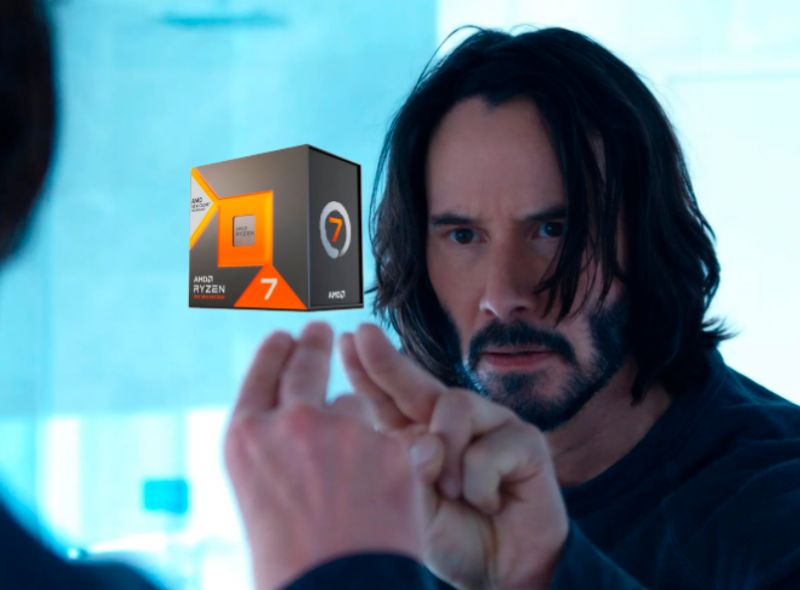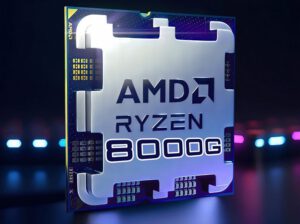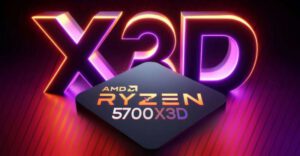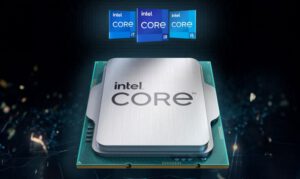Choosing the Best Processors of 2023: Why Perfect CPUs Don’t Exist and Which Ones Top the List This Year
Determining the best or worst processor of the year can be approached in several ways. One straightforward method is to look at sales rankings, where ordinary users “vote with their wallet”. These rankings vary regionally due to economic factors. For example, in Russia, where salaries are generally lower, budget-friendly processors tend to be more popular, while in Germany, more expensive models might top the list. Hence, there’s no universal consensus on the best processor. Today, we’ll examine the perspective of the popular ScatterVolt channel, which analyzed current trends to recommend several processors ideal for purchase in late 2023, along with our own commentary.

The Ryzen 7 7800X3D is considered the best processor of the outgoing year. If budget isn’t an issue, this choice is agreeable. It’s among the fastest in the world but is significantly cheaper than the flagships. The Ryzen 7 7800X3D offers a great price-performance ratio and can reach its full potential even on budget motherboards. It’s built on the AM5 platform, supported for several generations, making it a sound investment.
“Intel has updated its most budget series, cheap but powerful. i3-14100″
However, the Ryzen 7 7800X3D may be too pricey for most gamers. ScatterVolt suggests the Ryzen 5 7500F as an alternative. This 6-core processor with up to 5 GHz frequency costs about $180. Most gamers buy graphics cards under $350, making the Ryzen 7 7800X3D unnecessary. The Ryzen 5 7500F can fully utilize a card like the Radeon RX 7700 XT and is a future-proof choice for about 4-5 years.
Surprisingly, ScatterVolt recommends the Core i5-13600K and Core i5-12600K, both from past generations but with minimal discounts. The Core i5-13600K slightly outperforms the Ryzen 5 7500F in real games, but the difference is only noticeable with high-end cards like the GeForce RTX 4070 Ti. However, their cost-performance ratio is poor, and their platform’s lifecycle is ending. In contrast, a Ryzen 5 7500F owner can upgrade their system with a new chip in 3 years, an option not available for Intel’s platform.
The Ryzen 5 7600 and Ryzen 5 7600X are also mentioned, noted for their good price-performance ratio. However, they require expensive AM5 motherboards and DDR5 RAM, making them an unwise choice for budget builds.
Budget picks include the Ryzen 5 5600 and Core i3-12100F. The former is significantly faster than the latter. A better choice might be the Core i5-12400F, not included by ScatterVolt. Last-generation processors have two main drawbacks: no upgrade potential and lower frequencies compared to current-gen models. The Ryzen 7950X3D is called optimal, but it’s overkill for most scenarios and not cost-effective for gaming compared to the Ryzen 7 7800X3D.
Strong mid-range picks are the Ryzen 7 7700, Ryzen 7 7700X, Core i5-13700K, and Ryzen 5800X3D. The latter could be among the best in its price range, offering high performance and compatibility with expensive GPUs. Its AM4 platform also makes it a cost-effective choice. If you’re ready to invest in the AM5 platform’s potential, consider the Ryzen 7 7700X, which extends the computer’s lifecycle but requires additional expenses.
The Ryzen 5 5500, Ryzen 5 5600X, and Ryzen 7 5700X, also listed as mid-range, are older processors lagging behind newer models in speed but offering low costs. They’re suitable for budget PCs but not for other purposes.
ScatterVolt’s negative view on the Ryzen 7 5700G and Ryzen 5 5600G is questionable. While newer Ryzen 8000G models will be faster and more expensive, the Ryzen 5 5600G is an excellent choice for budget builds, especially for school computers. It won’t run the latest games but can handle popular titles like Counter-Strike and GTA.
In conclusion, there’s no such thing as a perfect processor; it all depends on the user’s needs and budget. While it’s naive to say all processors are good in their price range, it’s crucial to choose wisely to avoid future power shortages and unnecessary expenses.
The Ryzen 7800X3D once again outperformed the Core i9-14900K



